Spring reads + book moodboards
2025 has seen me become a reader again and I need to share it with you.
2025 has seen me become a reader again.
I bring my Kindle with me whenever I leave the house. I find myself reading a few pages in moments of downtime instead of scrolling on my phone. I have a need to walk into every bookstore that I walk past.
And with that, I’ve read more books that I thought I would have in just the first three months of this year. I love creating mood boards for each of the books I read (fiction, at least) as they instantly capture the mood the story evoked in me while reading it.
— FICTION
Intermezzo by Sally Rooney | 4.25/5 stars
Intermezzo by Sally Rooney took the literary world by storm - it felt like every bookstore I walked into was plastered with the signature blue colour from the cover and chess themed decor. Rooney’s latest book centres around two brothers grappling with grief and personal relationships in the wake of their father's death. Set in contemporary Ireland, the novel follows Ivan, a 22-year-old socially awkward chess prodigy, and Peter, a successful 30-something human rights lawyer in Dublin. Through Ivan and Peter's contrasting approaches to life, love, and each other, Rooney crafts a poignant exploration of grief, the fear of being seen as "not normal," and the struggle to connect authentically with others. The story unfolds through Rooney's signature stream-of-consciousness narrative, blending the characters' thoughts with their surroundings to create a vivid and intimate portrait of their lives. The novel's dense, introspective style sometimes made it a challenging read, particularly the first chapter, but this made it all the more worth it. I couldn’t deny just how masterfully the novel explores complex themes and relationships with Rooney's signature depth and insight - highly recommend if you haven’t picked up a copy yet.
Highlighted quotes (just a few of the many, many amazing quotes):
“What if life is just a collection of essentially unrelated experiences? Why does one thing have to follow meaningfully from another?”
“How often in life he has found himself a frustrated observer of apparently impenetrable systems, watching other people participate effortlessly in structures he can find no way to enter or even understand. So often that it’s practically baseline, just normal existence for him.”
“She has been contained before, contained and directed, by the trappings of ordinary life. Now she no longer feels contained or directed by anything at all. Life has slipped free of its netting. She can do very strange things now, she can find herself a very strange person.”
“Sometimes you need people to be perfect and they can’t be and you hate them forever for not being even though it isn’t their fault and it’s not yours either. You just needed something they didn’t have in them to give you.”
Moodboard:






Fourth Wing by Rebecca Yarros | 4.75/5 stars
Fourth Wing by Rebecca Yarros follows Violet Sorrengail, a young woman forced to abandon her dreams of becoming a scribe and enroll in the elite Basgiath War College to train as a dragon rider. At the college, Violet faces numerous challenges, including assassination attempts, rigorous training, and complex political intrigue. She forms unexpected alliances, including a friendship with Rhiannon and a complicated relationship with Xaden Riorson, son of a rebel leader executed by Violet's mother. The story explores themes of survival, self-discovery, and loyalty in a world torn by rebellion and external threats. Fourth Wing is a captivating blend of high fantasy and coming-of-age story, filled with intense action, intricate world-building, and character development. Yarros crafts a compelling narrative that keeps readers engaged as Violet fights to find her place in a world where failure means death and success could change the kingdom's fate. This book singlehandedly dragged me out of my reading slump and is one of the few books that actually lived up to the hype.
Highlighted quotes:
“One does not live a century without being well aware of the space one takes up”
“Hope is a fickle, dangerous thing. It steals your focus and aims it toward the possibilities instead of keeping it where it belongs—on the probabilities.”
“Fascinating. You look all frail and breakable, but you’re really a violent little thing, aren’t you?”
“Lies are comforting. Truth is painful.”
“One generation to change the text. One generation chooses to teach that text. The next grows, and the lie becomes history.”
Moodboard:

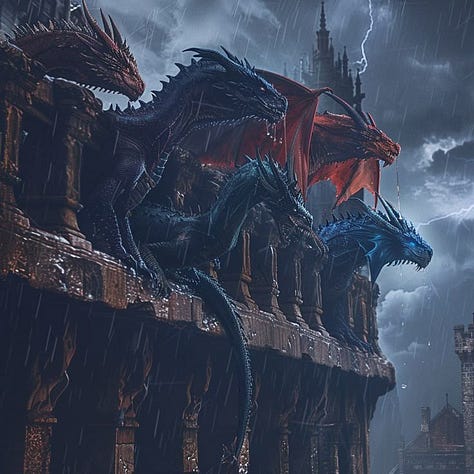
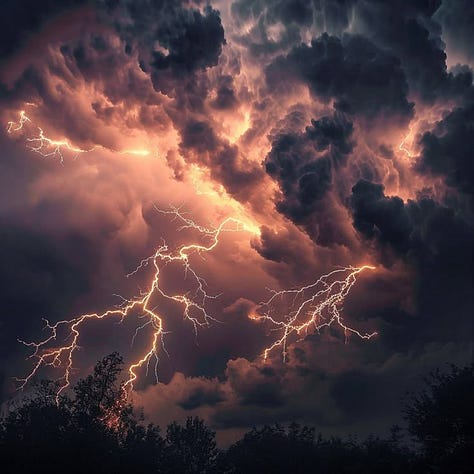

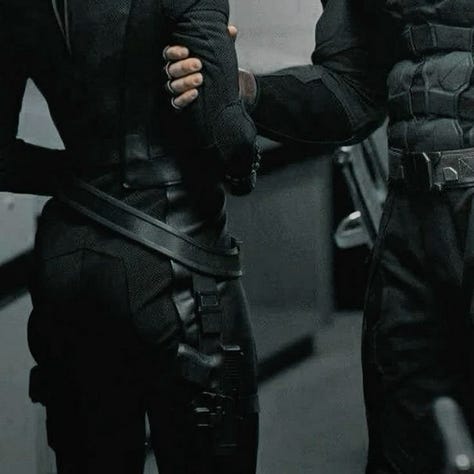
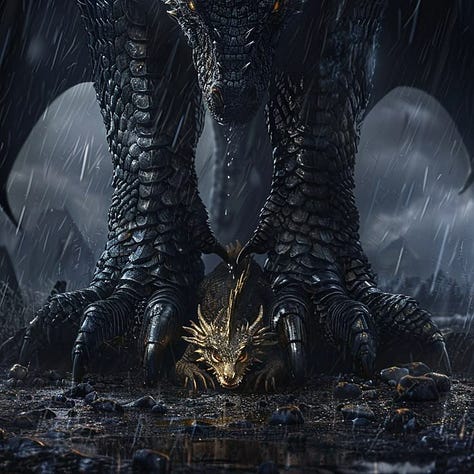
One Dark Window by Rachel Gillig | 4/5 stars
One Dark Window tells the story of Elspeth Spindle, a young woman living in the mist-locked kingdom of Blunder. At age nine, Elspeth survives a mysterious fever that leaves her with dark veins and a dangerous infection. This infection grants her a unique ability: she can see the magical aura of Providence Cards, powerful artifacts that grant supernatural abilities, but come at a cost. Elspeth's mind is shared with an ancient spirit she calls the Nightmare, which protects her but also threatens to consume her. When she meets a mysterious highwayman, Ravyn, who happens to be the King's nephew, Elspeth is thrust into a dangerous quest to cure Blunder of the dark magic infecting it. Gillig's writing is atmospheric and lush, creating a darkly enchanting world with gothic elements and a fairy tale feel. While not as grim as some dark fantasy, One Dark Window offers a captivating blend of magic, romance, and danger that keeps readers engaged throughout Elspeth's journey.
Highlighted quotes:
“Had I known they’d be the last words I’d say to him aloud, I might have chosen them differently.”
“Tell them. Tell them the truth. When your children ask, do not lie- do not hide the risk of magic. Children are strongest when their eyes are clear. Only then can they make their own choices. Only then are they truly free. Tell them. Tell them the truth.”
“Be wary the pink, the Nightmare said as he sniffed the air. Be wary the rose. Be wary of beauty divine, unopposed.”
Moodboard:



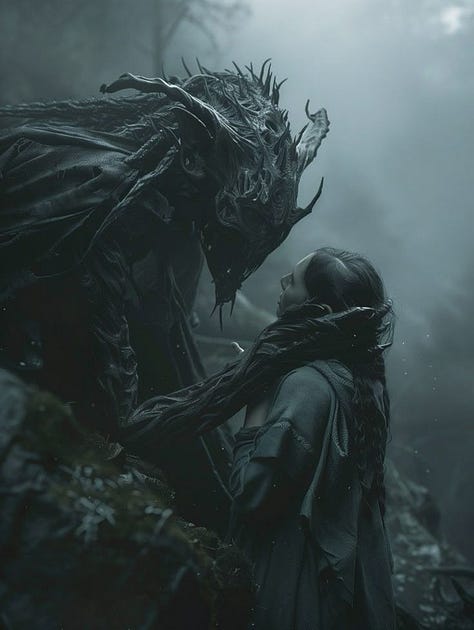

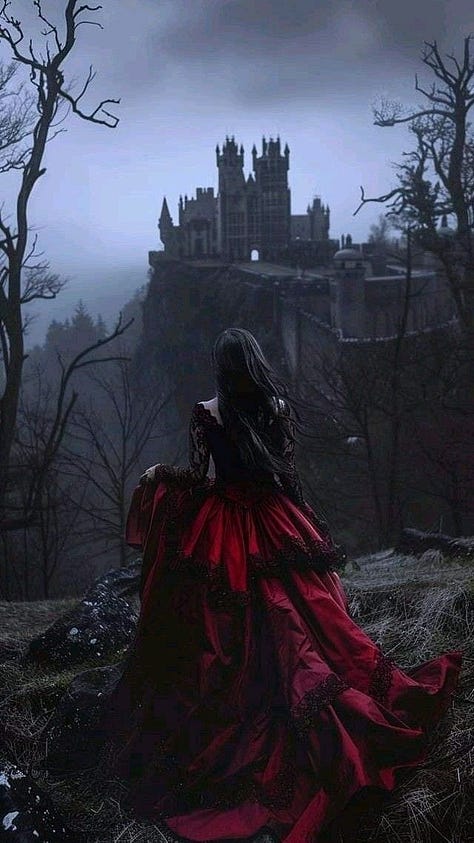
A Thousand Ships by Natalie Haynes | 3/5 stars
A Thousand Ships by Natalie Haynes retells the epic story of the Trojan War from the perspectives of the women involved, both mortal and divine. Set against the backdrop of ancient Greek mythology, the novel begins with the fall of Troy and weaves together the narratives of various female characters whose lives were forever altered by the decade-long conflict. The story unfolds through multiple viewpoints, including those of Trojan women captured as war prizes, Greek women left behind by their husbands, and goddesses whose actions set the war in motion. The novel explores the impact of war on women, power and agency, as well as grief and resilience. Haynes' novel offers a fresh perspective on a well-known tale, centering the experiences of women who have often been overlooked in traditional retellings, but for me this is all it did - the book felt more like dumping of information, rather than a standalone story with fleshed out characters.
Highlighted quotes:
“Heroism is something that can reside in all of us, particularly if circumstances push it to the fore. It doesn’t belong to men, any more than the tragic consequences of war belong to women. Survivors, victims, perpetrators: these roles are not always separate. People can be wounded and wounding at the same time, or at different times in the same life.”
“When a war was ended, the men lost their lives. But the women lost everything else.”
“Not every story leaves the teller unharmed.”
“Why should the past be any guarantee of the future?”
Moodboard:
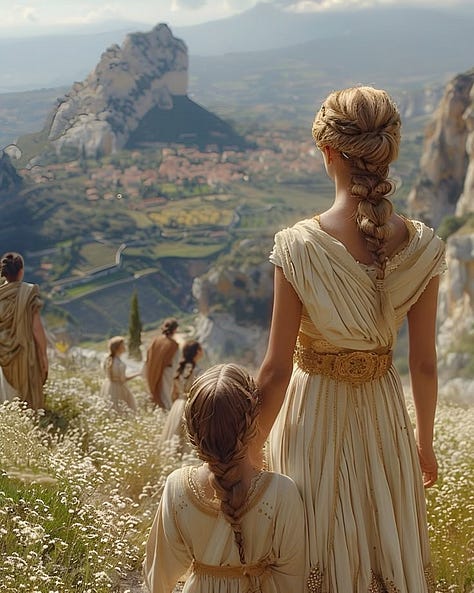





— NON-FICTION
The Shock Doctrine: The Rise of Disaster Capitalism by Naomi Klein | 3.75/5 stars
The Shock Doctrine explores how neoliberal economic policies have been implemented globally through the exploitation of disasters and crises. Klein argues that advocates of free market capitalism use "shocks" to push through unpopular reforms during times when populations are disoriented and unable to resist effectively. Klein traces the origins of this approach back to Milton Friedman's Chicago School of Economics and its application in Chile under Augusto Pinochet. Similar strategies were used in the UK under Margaret Thatcher and in other countries like Poland, China, and South Africa. The book highlights how these policies have led to the emergence of a "Disaster Capitalism Complex," where corporations profit from catastrophes by providing services and goods in the wake of disasters. Throughout the book, Klein challenges the notion that free market policies are democratically embraced, instead arguing that they are often imposed during crises when populations are most vulnerable. Her work has been influential in shaping discussions about the relationship between capitalism, crises, and social change.
Highlighted quotes:
“Extreme violence has a way of preventing us from seeing the interests it serves.”
“We do not always respond to shocks with regression. Sometimes, in the face of crisis, we grow up—fast.”
“There is no humane way to rule people against their will.”
Ultra-Processed People: The Science Behind Food That Isn't Food by Chris van Tulleken | 5/5 stars
Ultra-Processed People is a compelling exploration of ultra-processed foods (UPFs) and their profound impact on human health and society. Van Tulleken, an infectious diseases doctor and science broadcaster, combines personal anecdotes with scientific research to delve into the origins, economics, and effects of UPFs. He defines UPFs as foods wrapped in plastic with at least one ingredient not typically found in a kitchen, highlighting their engineered addictive nature and links to numerous health problems. Van Tulleken conducted a personal experiment, consuming an 80% UPF diet for a month to document the effects on his body and mind, providing a firsthand account of the physical and psychological changes he experienced. The book critiques the food industry, policymakers, and even some health organizations for their roles in promoting UPFs. Van Tulleken argues that factors like exercise and willpower are less significant than the nature of the food itself in driving health outcomes, challenging conventional wisdom about nutrition.
Highlighted quotes:
“It’s not food. It’s an industrially produced edible substance.”
“The word ‘sustainable’ has no formal meaning with any independent body. Sustainability criteria are largely set by industry and, in general, the designation just means that a farm growing it can’t clear new forest.”
“Fix poverty and you prevent a lot of both lung cancer and obesity.”
Doppelganger: A Trip into the Mirror World by Naomi Klein | 5/5 stars
This book is a thought-provoking exploration of identity, misinformation, and political polarisation in the modern era using Klein's experience of being frequently mistaken for Naomi Wolf as a starting point to delve into broader societal issues. Klein examines the phenomenon of "doubling" in various contexts, from online personas to conspiracy theories, investigating the rise of far-right ideologies, anti-vaccine movements, and the blurred lines between wellness influencers and political extremists. Departing from Klein's usual style of thesis-driven works, the book is structured as a narrative journey. It takes readers through the "mirror world" of conspiracy theories and political polarization, offering insights into why some people are drawn to extreme ideologies. Key themes include the instability of identity in the digital age, the proliferation of misinformation and conspiracy theories, the impact of social media on public discourse and personal relationships, and the intersection of wellness culture and far-right ideologies.
Highlighted quotes:
“We were not, and never were, self-made. We are made, and unmade, by one another.”
“Our role here on earth is not simply to maximize the advantage in our lives. It’s to maximize (protect, regenerate) all of life. We are here not just to make sure we as individuals survive, but to make sure that life survives; not to chase clout, but to chase life.”
“At bottom, it comes down to who and what we cannot bear to see—in our past, in our present, and in the future racing toward us. Performing and partitioning and projecting are the individual steps that make up the dance of avoidance.”
The Book of Ichigo Ichie: The Art of Making the Most of Every Moment, the Japanese Way by Héctor García | 4/5 stars
In The Book of Ichigo Ichie, the authors explore the Japanese concept of ichigo ichie, which means "one time, one meeting" or "for this time only." Published in 2019, this book delves into the philosophy of treasuring each moment as a unique, unrepeatable experience. García and Miralles draw from Japanese culture, particularly the tea ceremony, to illustrate how ichigo ichie can be applied to everyday life. They argue that by embracing this concept, readers can learn to be more present, mindful, and appreciative of their experiences. The book offers practical advice on how to create and recognize special moments, emphasising the importance of paying attention to one's surroundings and interactions. It offers a fresh perspective on mindfulness and presence, rooted in centuries-old Japanese wisdom but relevant to today's fast-paced world
Highlighted quotes:
“What we are experiencing right now will never happen again. And therefore, we must value each moment like a beautiful treasure.”
“People will forget what you said, people will forget what you did, but people will never forget how you made them feel.”
“If you don’t like reality, create another where you can live.”
What have you read recently? Any recommendations?
Until next time,
Allie x





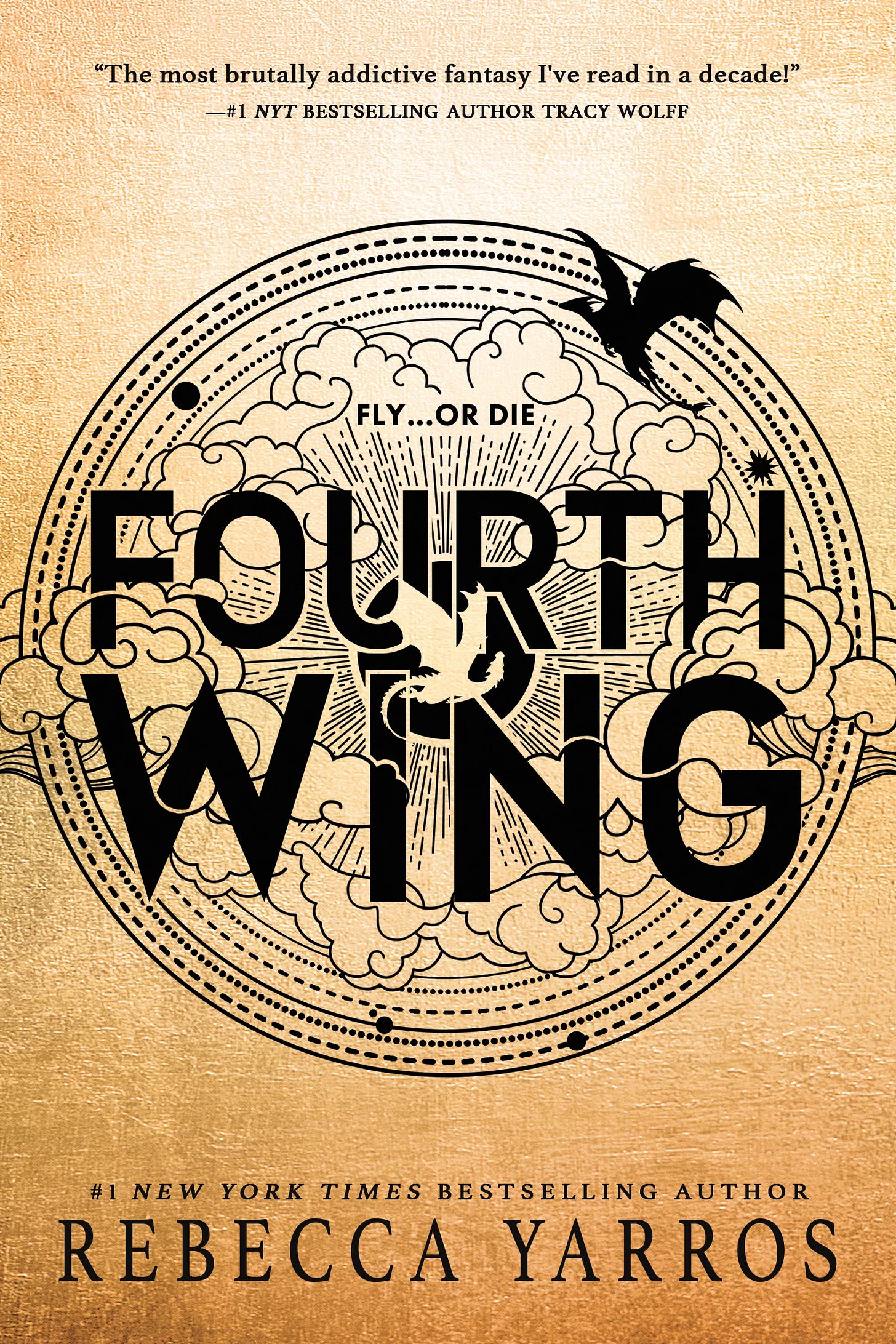
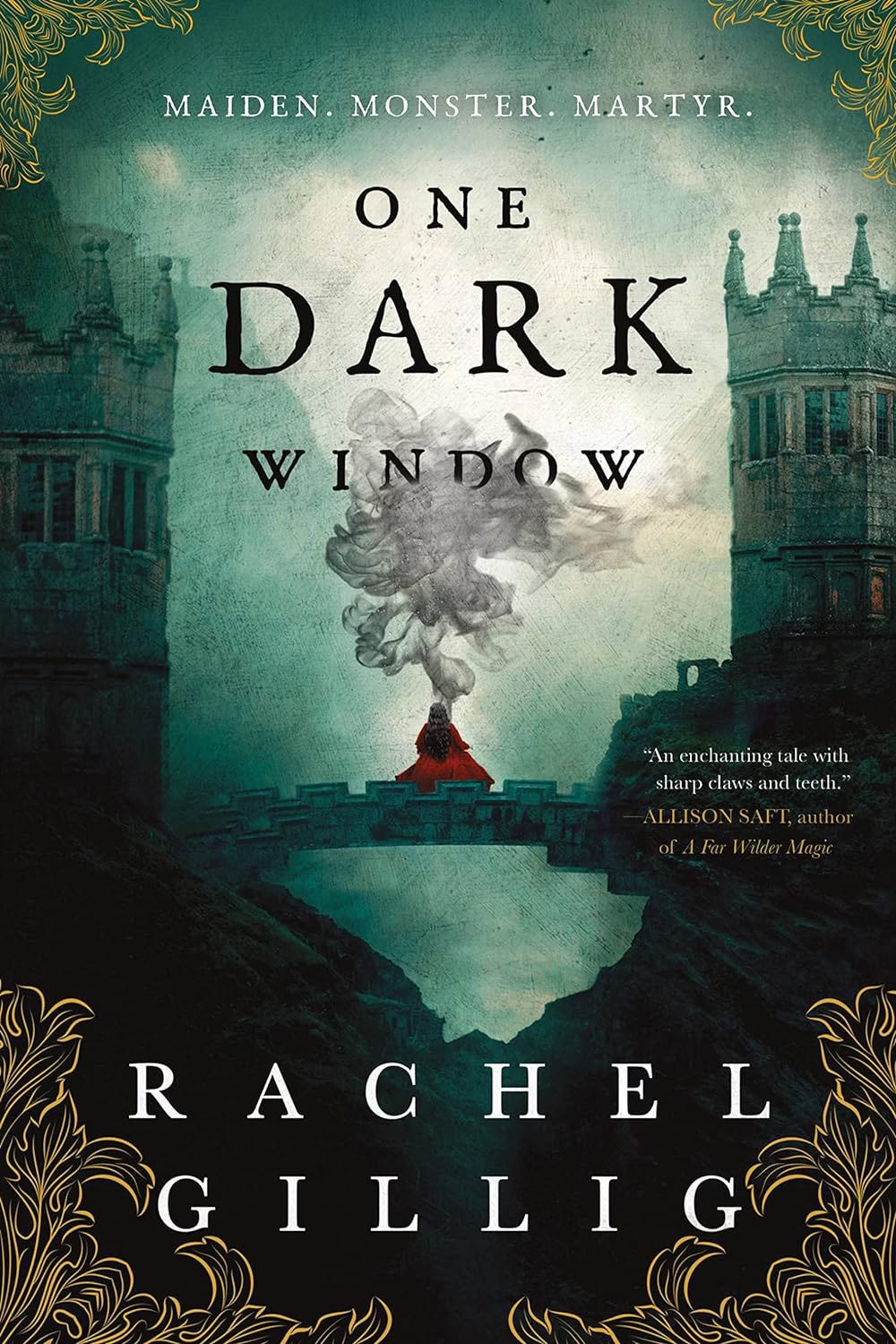

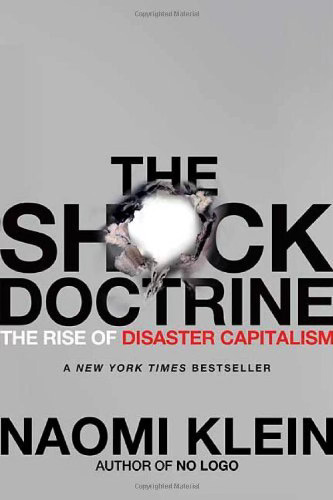
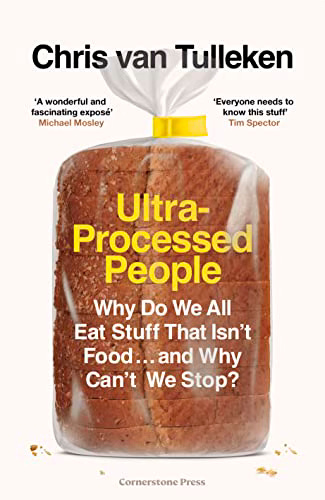
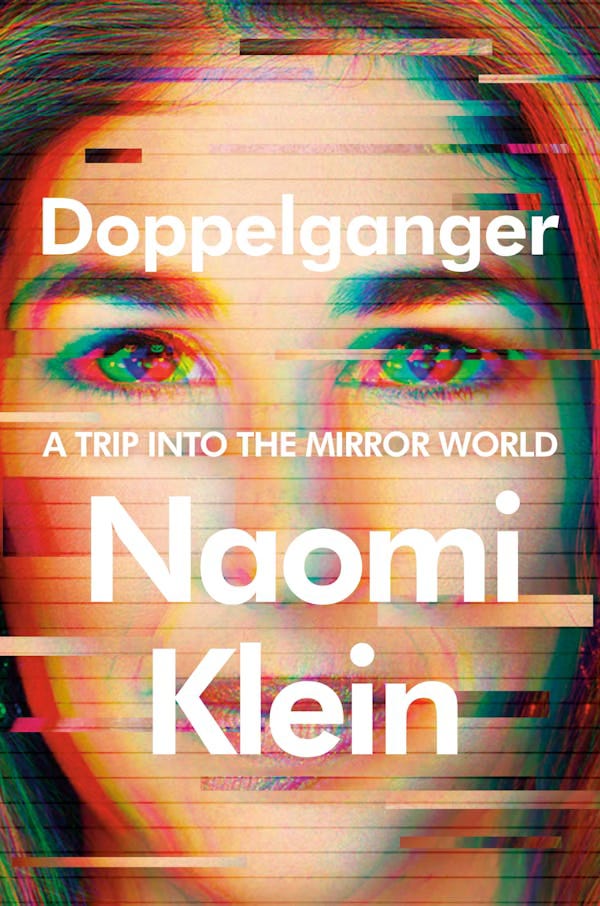
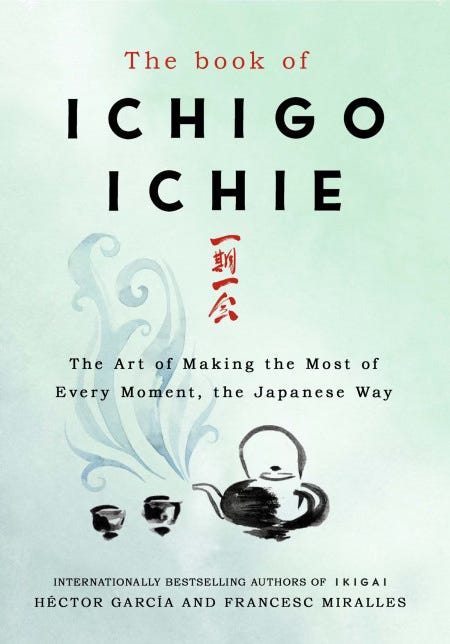
Amazing! Congratulations for getting back to reading & finding new things you love.
How did you get the images lined up so neatly?
I arrived here by searching “Intermezzo” to see what the thoughts were on Substack. Your review really matches my takeaways. I love the review/ quotes/ mood board format!